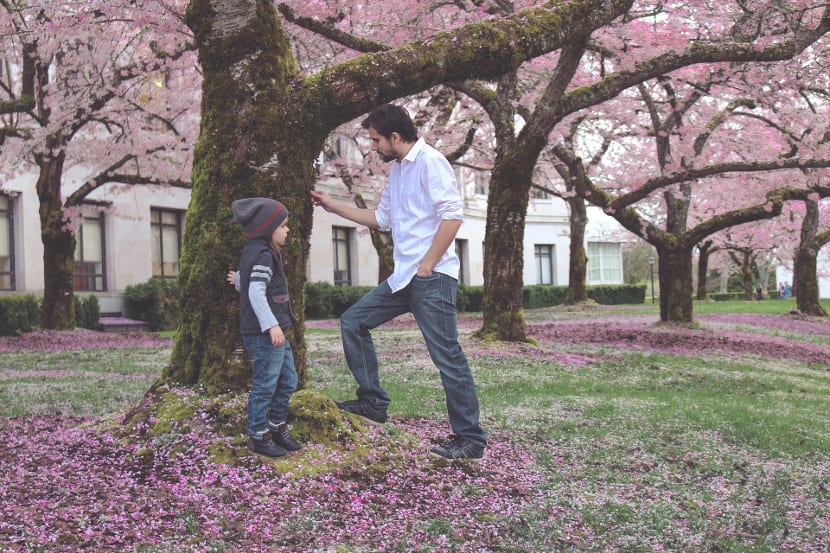
Unfortunately, it is not the first time I have seen parents looking at the mobile phone as if life were on it while their children are talking. There are adults who do not pay any attention to children and are not even able to take their eyes off the screen to look at their children. In this way, active listening is not taking place (which I will explain later on) and children may feel rejected.
I am sure that your children have many things to tell you. And, although some of them are not of vital importance, they are excited to tell them and let you know them. But, let's think for a moment that there are children who suffer bullying by classmates or that a teacher has humiliated them in class (that anything can happen). How are they going to tell you if you don't listen to them correctly?
Listening to your children does not mean nodding your head
When I walk my dog in the parks, I notice how some parents act with their children. There are children who when they want to tell them something they run up to them and talk to them. At that time, there are parents who nod their heads without taking their eyes off the book or mobile. That's why I say nod your head repeatedly it does not mean, far from it, that it is being actively listened to.
If you are going to listen to your children, you have to give them your full attention
Through active listening you can make your children feel incredibly loved. They see that they are understood, that they are valued and that they are being given all the attention they require at that moment, they will be happy and will not be afraid to tell you anything. Therefore, when children want to talk with you, it is better that you detach yourself from everything that can distract you from the conversation and that you simply focus on them.
If you can't speak at a specific time, tell them the right way
I can understand that you do not have all the time in the world and that at a certain moment you are busy. When your children come to you to talk about a topic and you just can't, do not be angry. And don't yell at them either (I've seen quite a few parents do that). It is better to get up for a few minutes and tell them in an assertive way that you are going to be busy for a while and then you will give them your full attention.
Imagine for a few minutes that you are children. ¿How would you feel if when you went looking for your parents they yelled at you and got angry with you? I guess wrong. Therefore, you have to have empathy and try to understand them as well. Your children will feel better if you explain things to them and inform them.

You have to pay close attention to non-verbal language
Sometimes it may be difficult for you to express your emotions and feelings. The same thing can happen to your children. If they have had any bad behavior at school, it will be difficult for them to tell you for fear of possible punishment. Perhaps when they speak to you they will not tell you directly that they have misbehaved in the center. I recommend that you pay attention to their non-verbal language. They can look away when they talk, move a lot, have a nervous smile because they are hiding something ...
In bullying situations, children may have a sad or bitter tone of voice. And their body posture tenses when asked how they have been in school. Therefore, it is essential that all your senses are in your children. Maybe they are not telling something and something serious is really happening to them in the center.
Let them finish talking and don't interrupt them
Some parents, when their children are telling them something, do not let them finish. They ask a lot of questions in between and are constantly interrupted. It is clear that this is not the best way to communicate with anyone. You better always let them finish talking (many children need time to collect their ideas and thoughts) and that you are interested in what they have said once they have finished speaking.

And remember that active listening favors good communication with your children
Try not to let your children ask you: "But are you listening to me?" Active listening favors good communication and relationships with children. Remember that looking at your children is more important than being attentive to social networks and that they will feel closer to you if you pay them the necessary attention. And if you can't, as I said before, talk to them in a natural and slow way. I'm sure they will understand.
And do you keep an active listening with your children?
Wonderful post! And how right you are, Mel! Girls and boys need a lot of time and dedication, and sometimes the little we have is lost in inconsequential actions.
I usually talk about this with those who attend my talks, and I tell them that mothers and fathers have a habit of questioning children on issues that interest us, but we are not usually prepared to listen to what they need to say.
It requires a little effort and above all to be convinced that listening also transmits interest and affection.
A abrazo.